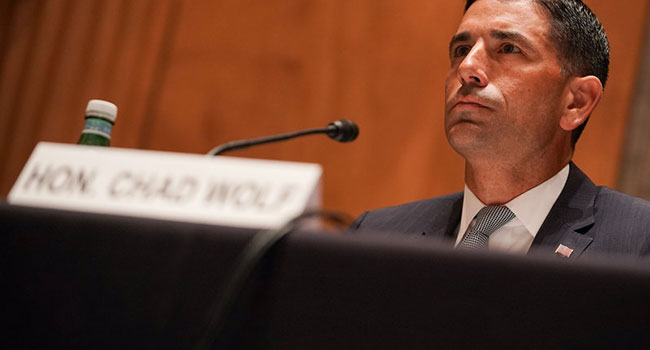
DHS: Wolf Resigns from Homeland Security Department
Chad Wolf, acting secretary for the Department of Homeland Security, is stepping down, according to a senior department official. Wolf's departure from the Trump administration, just days before the president's norm-shattering term is set to come to a close, is the most recent Cabinet resignation since last week. Several other officials in the Trump administration have left since Wednesday, citing the deadly insurrection on Capitol Hill.
In a letter to department staff: "I am saddened to take this step, as it was my intention to serve the Department until the end of this Administration."
"Unfortunately, this action is warranted by recent events, including the ongoing and meritless court rulings regarding the validity of my authority as Acting Secretary. These events and concerns increasingly serve to divert attention and resources away from the important work of the Department in this critical time of a transition of power," he said.
A day before his announcement, Wolf signed multiple security cooperation agreements that focus on facilitating secure trade and travel with the Kingdom of Bahrain. Acting Secretary Wolf and Minister of Interior Lt. General Sheikh Rashed bin Abdulla Al-Khalifa signed the Global Entry (GE) Memorandum of Cooperation (MOC) and agreements to increase cooperation on border and cargo security.
“I would like to thank the Kingdom of Bahrain for its continued close collaboration and crucial partnership with the United States,” Wolf said. “These agreements will continue to foster a bilateral approach to our shared security challenges.”
The Global Entry MOC extends eligibility benefits to Bahrain and allows CBP to continue to work with Bahrain to finalize standard operation procedures and other technical documents required to support a full Global Entry arrangement.
The bilateral border security and cargo security agreements will enable DHS and the Kingdom of Bahrain to work together more closely to detect potential threats to border and national security, while facilitating legitimate trade and travel.